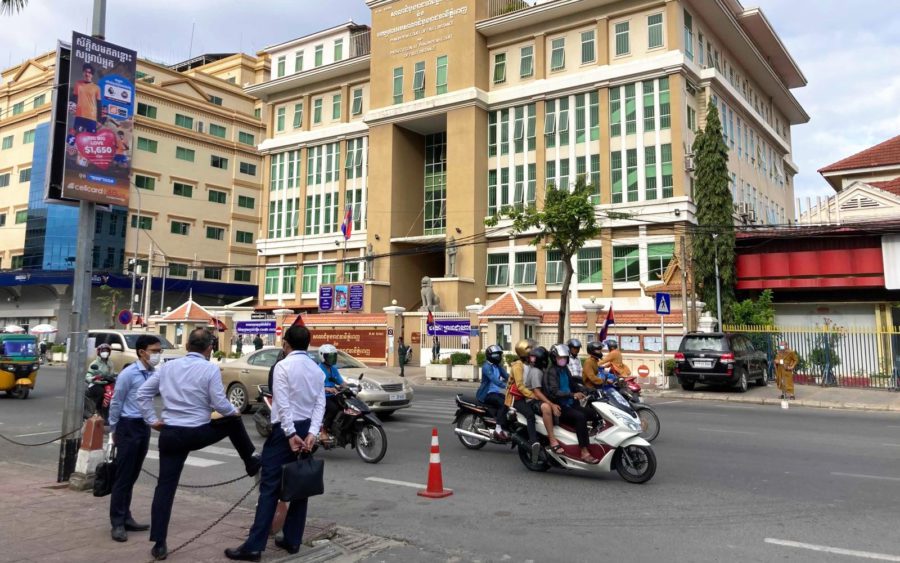A garment workers’ union is seeking help from the Ministry of Labor in resolving a stalled dispute over the sudden termination of 1,700 Phnom Penh factory workers earlier this month but has yet to reach a solution.
On January 31, garment factory Cambo Handsome Ltd.in Choam Chao III commune in Pur Senchey district announced that it would close down all production operations because of a lack of orders and ended all contracts with all the workers in the factory. The workers did not receive any compensation pursuant to Cambodian labor law, according to a letter that the Coalition of Cambodian Apparel Workers’ Democratic Union (CCAWDU) sent to the Ministry of Labor on February 1.
The letter asked the company to fulfill five points, including paying the last month’s wages, remaining annual leave, compensation for lack of notice in shutting down, seniority-based wages the workers claim were previously unpaid in 2019, and damages for mental harm.
Although the company agreed to the first four points, it refused to pay damages, according to the letter. Cambodian labor law requires employers to pay damages for termination without valid reason.
“All of the employees had a meeting and decided to give our thumbprints and give the rights to CCAWDU, and have our representatives discuss the labor dispute with Cambo Handsome at every step with legal procedures and the judicial system,” the letter reads in part.
The next day, roughly 1,700 workers protested in front of the factory, demanding that it fulfill its obligation for damages.
During the protest, Koy Samphors, one of the protesters and union member, said some of the workers had slept in front of the factory for two nights in case the owner tried to walk in or out without the workers seeing.
That same day, the Ministry of Labor agreed representatives had a meeting with company representatives but would not allow the workers or CCAWDU to participate, Samphors said.
“The factory announced its shutting down on January 31st … and never explained to the workers why, and did not give a head up to any workers,” Samphors continued. “They resolved four points of problems we demanded, but we demanded five because what they gave us was not right by the law.”
“So we demand that they compensate us for mental damages, but they don’t agree.”
On Tuesday, about 300 workers gathered again at the factory, complaining that it appeared to be open — with some workers going in and out — but that the dispute still had yet to be solved. The Ministry of Labor coordinated a joint meeting with union leaders met and the company that afternoon, but no results were announced.













